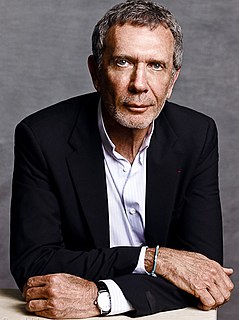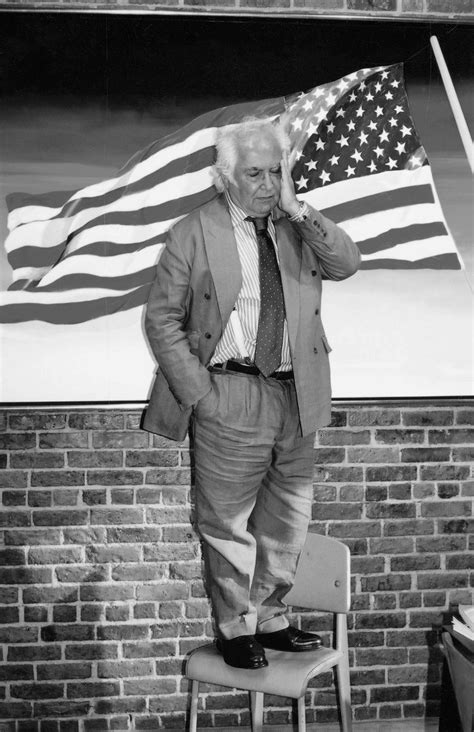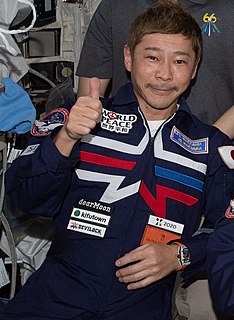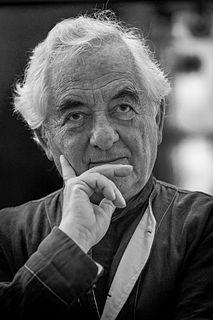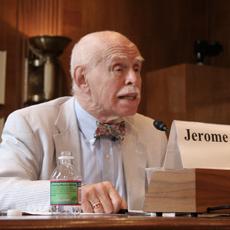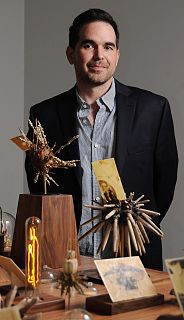A Quote by Arne Glimcher
In the early 1990s we witnessed the emergence of a revitalized contemporary Chinese art world that began as a reaction against the government-approved Social Realist style. Zhang Xiaogang, Huang Yong Ping, Ai WeiWei, Yue Minjun, and Wang Guangyi were among the first group of artists to establish a movement that became known as Cynical Realism.
Related Quotes
There is the specter of "realism" that is still haunting Chinese contemporary art - that art is only an instrument, an instrument to reflect society, that it must be useful for society. Also, I have noticed many Western media outlets are very insistent on understanding contemporary art in China through this kind of realist approach. Sometimes I even sense that they are intent on, as we say in China, "picking bones of politics out of an egg of art." Or perhaps they see art as merely an instrument to reflect society.
The breakdown of the modern movement led to what later became known as postmodern-whatever the hell that means-referring to the mixture of people and backgrounds that became a common thing among artists in America. Many of the great artists in America, for example, came from Jewish families and backgrounds that fled all the way from Russia. It's remarkable, the great masters of American art and cinema who were coming from old roots in little villages there. And then Hollywood, and the haunting, hypnotic impact that American Cinema had throughout the world . . .
During the last 35 years, the artists multiplied, the public grew enormously, the economy exploded, and so-called contemporary art became fashionable. All these parameters changed the art world form its previous aspects and fundamentals - the explosion of museums and institutions, explosion of Biennales and Triennials, explosion of money, explosion of interest, explosion of artists, explosion of countries interested in contemporary exhibitions, explosion of the public. Not to see that is to be more than blind.
First, there was Confucius. Then, the sayings of Chairman Mao. And now the pithy, ironic, and humorous insights of Ai Weiwei. I thoroughly enjoyed reading this collection, which reflects a well-developed philosophy as well as a keen understanding of the Chinese Communist system. This is China made easy and interesting.
Populism in contemporary art can become a dirty word. There is this notion that to not be understood is a reflection of depth. I'm sure this is true in some cases, but on the whole I can't accept this as a vision of art. There's something so cynical about assuming your audience is unintelligent or that artists shouldn't care about their viewers.
I was seduced by the nouvelle vague, because it was really reinventing everything. And the Italian cinema that one would see in the theaters in the late '50s, early '60s was Italian comedy, Italian style, which, to me, was like the end of neo-realism. I think cinema all over the world was influenced by it, which was Italy finding its freedom at the end of fascism, the end of the Nazi invasion. It was a kind of incredible energy. Then, late '50s, early '60s, the neo-realism lost its great energy and became comedy.
The notion of the Internet as a force of political and social revolution is not a new one. As far back as the early 1990s, in the early days of the World Wide Web, there were technologists and writers arguing forcefully that the Internet was destined to become the most important tool for cultural change in human history.
